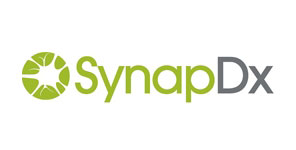Autism, the disorder that affects social skills and communication and that is seeing a rising number of diagnoses, has a myriad number of causes from genetic to environmental factors. Because it’s largely behavioral, it may not be formally diagnosed until a child is a few years old, preventing much-needed early intervention and care.
But a Massachusetts-based startup SynapDx is hoping to change that by combining advanced bioinformatics, genome sequencing and blood tests in a way that may help parents diagnose their children at a much earlier age.
The company just closed a $15.4 million round led by Google Ventures to develop a blood test for the disorder, by studying the genetic make-up of children who are clinically diagnosed with the condition. The more the company can understand about different genetic mutations that are associated with autism, the more accurate a blood test they can create to signal for the disorder.
“We don’t know what the root causes of autism are, but we can correlate what we see in the blood with clinical diagnoses,” said Theresa Tribble, the vice president of commercial strategy for the company. “We hope to collaborate with researchers to give us additional insight to what those causes are.”
The end goal isn’t to create a bulletproof blood test for autism, but to create an early-stage test that can help parents refer their children for a full medical diagnosis earlier on.
“This is more of a risk assessment,” she said. “The goal is to help pediatricians identify children who should be referred for a full clinical evaluation earlier than they do today.”
She added that the average age of diagnosis is around four-and-a-half years, but parents often become worried at around 18 months.
“That’s a really long lag,” she said.
Foundation Medical Partners also joins as a new investor along with earlier investors North Bridge Venture Partners and General Catalyst Partners.
With the round, Google’s Andrew Conrad, who is the former chief scientific officer of LabCorp and co-founder of the National Genetics Institute, will join the board. Google Ventures’ Krishna Yeshwant, who leads many of the firm’s health and medical investments, did this deal.
While SynapDx is solely focused on autism today, one could imagine that they could apply their techniques to other disorders later on.
“There continue to be broad unmet needs in objective genomics tests for neurodevelopment disorders, so that would be a natural expansion point,” Tribble said. “But autism is our primary focus today.”
SynapDx uses the same genome sequencers from companies like Illumina that many other genomic data startups are using. But then they layer on other proprietary techniques afterward to correlate disease risks with genetic mutations.
“The secret sauce comes from our informatics capabilities,” Tribble said. The company’s test measures the amounts of RNA which are copied from each of many different genes. For every gene, the amount of RNA copied determines how much protein is made. Those proteins in turn affect how the human brain develops and how speech and behavioral patterns evolve.
The company doesn’t have a formal timeline for when it will be able to launch the test commercially. They recently launched a 660-child, 20-site clinical study earlier this year.
